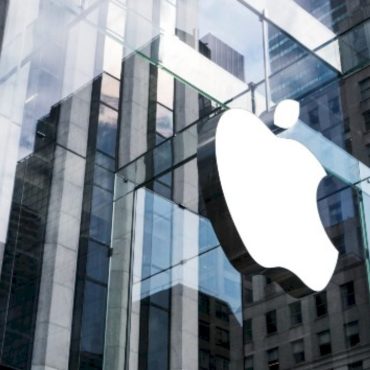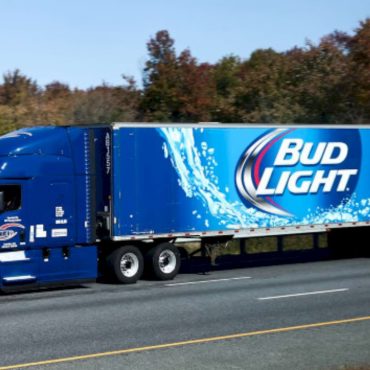Listeners:
Top listeners:
-
 play_arrow
play_arrow
94.3 Rev-FM The Rock of Texas | Where Texas Rocks
-
 play_arrow
play_arrow
99.1 The Buck Texas Country's Number 1 Country
-
 play_arrow
play_arrow
103.7 MikeFM Your Texas Hill Country Mix Tape
-
 play_arrow
play_arrow
KERV 1230 AM
-
 play_arrow
play_arrow
JAM Sports 1 JAM Broadcasting Sports 1
-
 play_arrow
play_arrow
JAM Sports 2 JAM Broadcasting Sports 2
Internal combustion engines are far from over: ‘There was a bit of hype’ around EVs, industry watchers say
(NEW YORK) — It’s nearly impossible not to smile when you squeeze the throttle on the new Aston Martin Vantage.
Aston executives may wax on about the Vantage’s state-of-the-art infotainment system, but what’s under the hood is more exciting: a heavily reworked, hand-built 4.0 twin-turbo V8 that delivers 656 horsepower and a thunderous howl.
Take it for a spin on winding roads or test its limits on a race track — the car’s rowdy, brash exhaust note reacts to every input the driver decrees. The latest version of the British marque’s 60-year-old sports car clearly answers enthusiasts’ demands: give us a mighty engine that we can see, smell and experience.
The Vantage is not for environmentalists who are searching for performance and zero emissions. In fact, Aston executives have pushed back their timeline for building an all-electric sports car, citing the lack of interest from consumers. Instead, resources are going toward launching a powerful, “fearsome” V12 engine that could produce 824 hp.
Aston is far from alone. Bugatti’s new hypercar, coming June 20, still features a W16 engine. Lamborghini, the Italian supercar brand, said the successor to the Huracan packs a twin-turbo V8 engine.
“Enthusiasts absolutely want a V8 in the supercar segment,” Alex Long, director of product and strategy at Aston Martin, told ABC News. “They want the sound quality it brings, the feel through the cabin, everything. Our customers are not asking for an electric Aston.”
The anti-electric attitude extends beyond the enthusiast community. Forty-six percent of Americans say they are “not too likely or not at all likely to purchase” an EV, according to a recent poll by The Associated Press -NORC Center for Public Affairs Research and the Energy Policy Institute at the University of Chicago.
Earlier this year, luxury German automaker Mercedes delayed its electrification plans by five years, with CEO Ola Kaellenius telling investors the company was still committed to producing combustion engine cars. Last month, Toyota executives announced its engineers were developing smaller, next-gen engines that can run on alternative fuels like liquid hydrogen.
Industry insiders are calling the trend “return to ICE,” or internal combustion engines.
“Maybe there was a little bit of a hype [around EVs]. There are challenges with an all EV world,” McKeel Hagerty, CEO of Hagerty, an automotive enthusiast brand, told ABC News. “There’s a place for EVs for people who really want them, especially the high-performance ones, but they don’t seem to be selling and I think that tells us something.”
Tony Quiroga, editor-in-chief of Car and Driver and co-host of the magazine’s new “Into Cars” podcast, noted that EVs can work for some Americans though the inconvenience of charging can outweigh the pros.
“Everyone who wanted an EV has one now,” he told ABC News.
For enthusiasts, the attraction of owning an electric sports car is waning, he argued.
“Aside from acceleration, it’s not the same experience” as an ICE sports car, he said. “So many EVs can perform as quickly in a straight line for under $100K and buyers are realizing that.”
He went on, “V12 and even V8 engines are becoming increasingly rare — there is an exclusivity to it. Gearheads are realizing the experience is such an important part of the car and the engine is what makes these cars so special.”
Rimac CEO Matt Rimac acknowledged that wealthy drivers have shown little interest in his heavily trumpeted Nevera hypercar, which can generate a staggering 1,914 hp from four electric motors. Limited to 150 units, the Croatian company has struggled to find buyers.
“We started to develop [the] Nevera in 2016/2017, when electric was cool,” Rimac said at the Financial Times Future of the Car conference in May. “At that time, we were thinking electric cars would be cool in a few years — the best cars, or with the highest performance and so on. We notice [now] that as electrification is becoming mainstream, people at the top end of the sector want to differentiate themselves.”
Hagerty said he invites skeptical enthusiasts to drive his all-electric Porsche Taycan Turbo S in Michigan so that they, too, can realize the “undeniable performance” with electric sports cars.
“I put them behind the wheel and say try this Taycan — you don’t even have to put in sport mode,” he said. “The joke is that some EVs don’t feel like a car, that they’re an electronic appliance. The Taycan feels like a car, rides like a car and gets that torque and performance.”
He added, “I bought it because I am open to these things.”
Jason Cammisa, an award-winning automotive journalist and successful YouTube host, argued that electrification would always be a tough sell to the hardened automotive community that prefers the “old, screaming, antiquated tech” in ICE cars. There are positives to driving electric sports cars — the low center of gravity, the insane speeds — though many enthusiasts are clamoring for more than performance numbers, he said.
“For me, the most interesting cars in the world right now are naturally aspirated, high revving, manual transmission — a return to 20 years ago,” Cammisa told ABC News. “You can’t win a race with an ICE car [versus an electric one] so let’s go back to what makes these things great.”
Cammisa pointed out that even reducing cylinders in an engine can cause an uproar. He gave the example of when Porsche put in a turbocharged four-cylinder engine in the Boxster and Cayman. Owners revolted and sales slipped. To appease critics, Porsche offered a naturally aspirated flat-six engine in the cars and enthusiasts jockeyed for an allocation, paying above sticker price to get one.
“Everyone is a little hysterical right now. It’s always in response to fear,” Cammisa said. “The regulatory environment will determine what the mix of ICE and EV is. Consumers are trying to send a message to the government — stop pushing so hard on EVs — and we’re seeing a battle between the government and consumer right now.”
The solution for enthusiasts — and average motorists — may be a hybrid, which Cammisa and Quiroga both agree can satisfy drivers and environmentally conscious consumers.
For the sports car crowd, Cammisa liked the Corvette E-Ray so much that he called it “an example of a hybrid done correctly.”
It may not be tuned for efficiency, Quiroga said, but the E-Ray, the first electrified Vette with all-wheel-drive capability, is “spectacular.”
“The electric motor fills in the power before the gas engine does … it’s heavy but you can’t really notice the weight. It’s so quick and wonderful,” he added.
Karl Brauer, executive analyst at iSeeCars.com, said he expects to see more performance hybrids coming in the next few years. The Huracan successor pairs three electric motors with the V8 and even Aston Martin’s Valhalla, a mid-engine hypercar, features a hybrid powertrain.
Porsche recently announced that the 2025 911 Carrera GTS will have a uniquely T-Hybrid system that includes an electric exhaust gas turbocharger. The electric motor also functions as a generator.
“I am a huge fan of hybrids and they are the brilliant option now,” Brauer told ABC News. “We’re at an important reflection point of where we are and where things are going.”
Long, of Aston Martin, said the Vantage has even more to offer than a snarling V8 engine.
“It’s a complete reappraisal of vehicle dynamics from us,” he said. “Even people who have been with the brand for a long time, they cannot believe the level of sophistication in the ride, the lateral grip, the responsiveness. This is their trophy car.”
Copyright © 2024, ABC Audio. All rights reserved.
Written by: ABC News
Similar posts
-
Top popular

Ingram man charged with murder after fatal shooting

Kerr Crime Stoppers offering reward up to $5,000 for information in last week’s non-viable school threat

KISD asks parents to communicate with children about words and actions after ‘copy cat’ threat note found at middle school

City of Kerrville Parks and Recreation reminds citizens that a Red Flag Warning is in effect until further notice

City of Kerrville says that May 7 General and Special Elections will proceed



